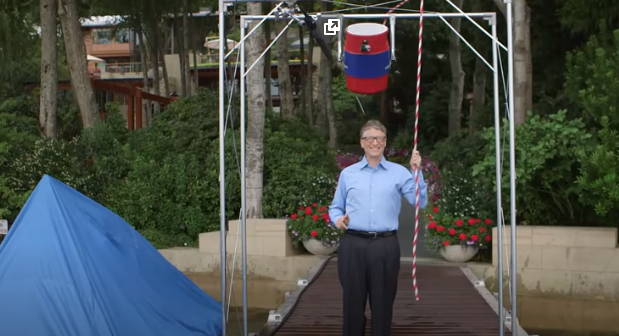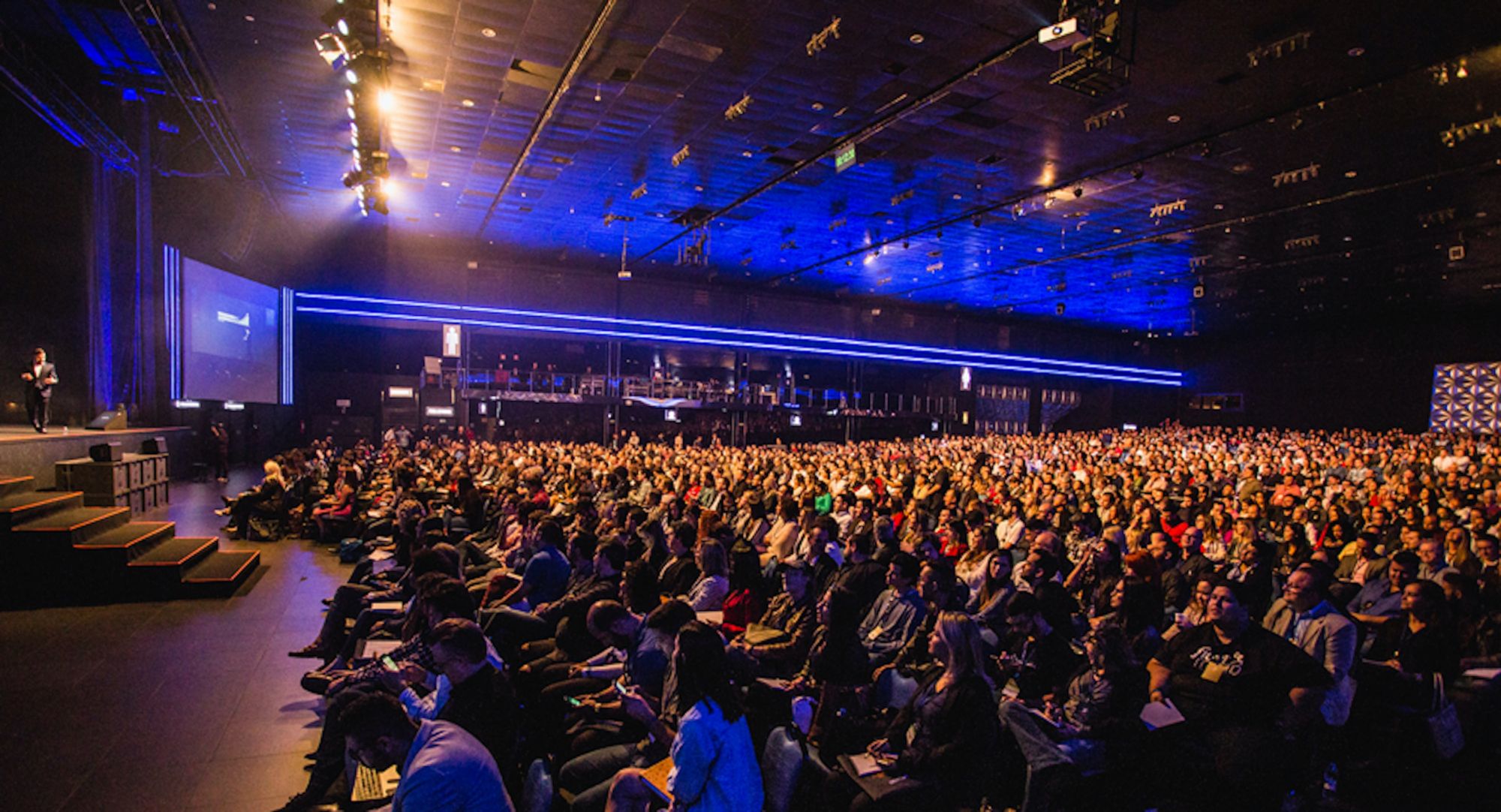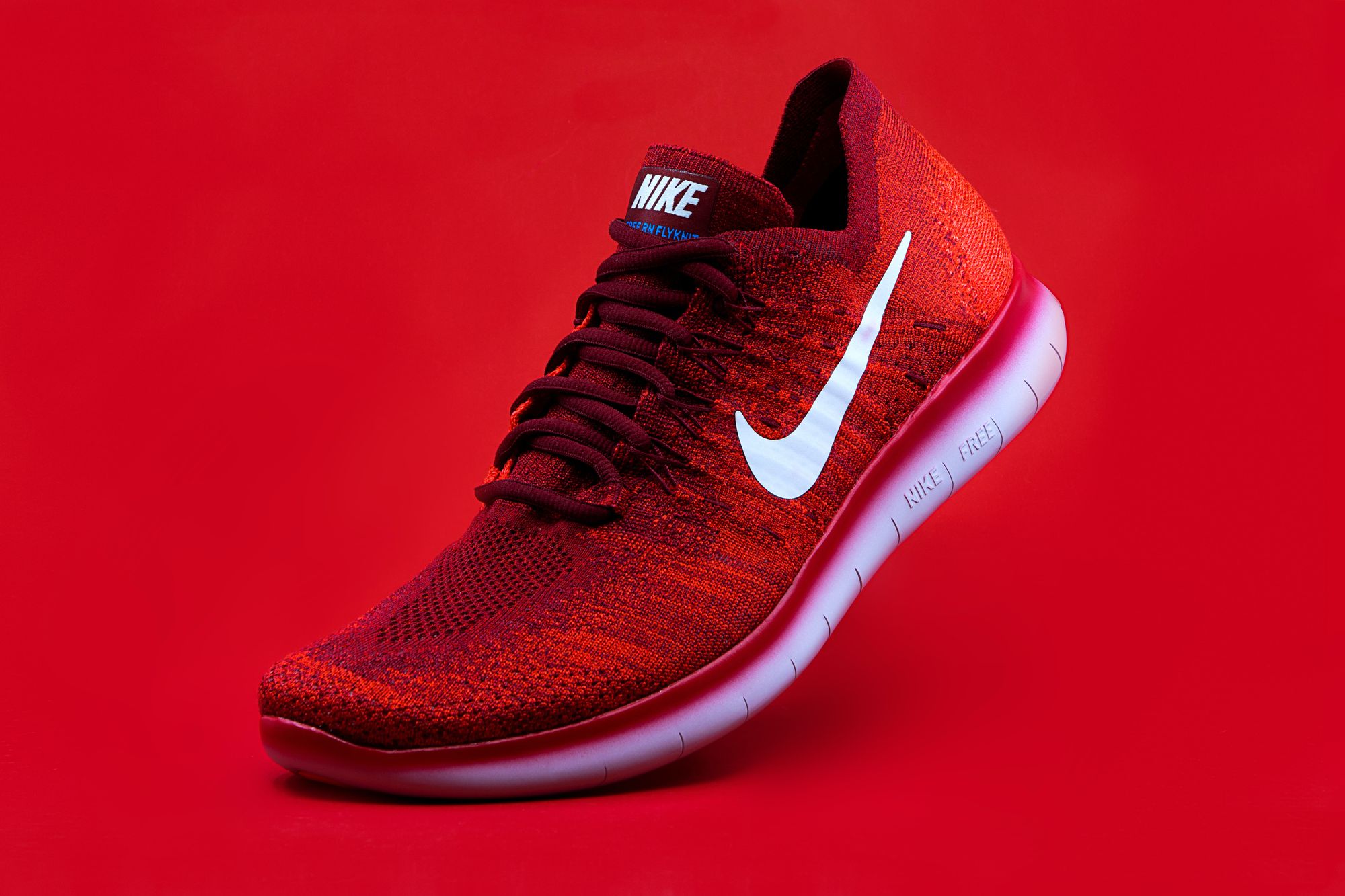“Have you checked out that viral video I shared with you?”
Or
“Wow! This viral meme is hilarious!”
Conversations about 'Viral Marketing' have become a common part of your communication. But have you ever considered what makes a piece of content go viral? Is there a strategy or is it just a lucky break?

To understand this concept in detail, we have composed this guide that will clear all your doubts. Let’s explore what we’ll learn ahead:
- What’s Viral Marketing?
- Characteristics of Viral Marketing?
- How Viral Marketing Works?
- Why Use Viral Marketing?
- Types of Viral Marketing?
- Key Elements to Include in Viral Marketing?
- Tactics in Viral Marketing?
- Advantages of Viral Marketing?
- Disadvantages of Viral Marketing?
- How can Viral Marketing Benefit your Brand?
- How You Can Make Social Media Campaigns Go Viral?
- Examples Associated with Viral Marketing?
- Frequently Asked Questions on Viral Marketing (FAQs)
What’s Viral Marketing?
Viral marketing is a type of marketing where businesses or brands endorse their products or services via online methods. This information or content spreads like wildfire throughout the internet. It is also known as ‘V-Marketing’ or ‘Organic Marketing.’ In addition, viral marketing is highly effective, creating a vast amount of traffic and leads.
The campaign’s purpose is to encourage consumers to share content with the greatest number of people via word-of-mouth. According to case studies, videos that deliberately encourage this are more likely to go viral.
Interestingly, the simplicity of many successful viral videos is the key to their popularity. It has grown in popularity as a marketing approach because there is the greatest ever audience all connected and awaiting to distribute content.
Furthermore, it is a relatively new marketing method that has emerged as a result of the advancement of technology, with an increasing number of individuals having access to social media. Its following continues to grow. Your content grows viral as you reach new milestones.
The greatest approach to becoming viral on social networking sites could be achieved in certain ways. It includes creating video content that is amusing, emotional, creative, informative, or surprising. Among the social media platforms listed are Tik Tok, Facebook, Twitter, Instagram, and others.
It was initially dubbed "viral" after surpassing a million views. However, when more videos reach a million views, the threshold for going viral rises—first to two million, then to five million. The number of views required for a video to go viral will continue to rise in the future.
Characteristics of Viral Marketing
Viral Marketing includes three core characteristics that build up the strong foundation of viral strategy. Without these three elements— you will miss your chance to get viral. Let’s check them:
1. Content/Message: Your shared content must contain any form of brand-related information. It may be an image, video, gif, podcast, meme, and much more.
2. Messenger: Any individual who hears or distributes the content or message is a messenger. A messenger could be a present or prospective customer, or even someone who does not fit your target demographic.
3. Ecosystem: It includes the social media platforms where the content has been transmitted and received. Among other things, it might include customers, potential customers, expectations, and attitudes. Even people who aren't potential clients can be influenced by the ecosystem.
How Viral Marketing Works
The working of Viral marketing completely varies from traditional marketing. There is no specified audience or target when it comes to viral marketing.
Surprisingly, viral marketing is an easy and simple approach to implement. Here’s what you need to do— Create an engaging video or other pieces of content for your target audience, post it on the internet, and promote it. Now, all you have to do is to wait for users to share it as much as possible.
Moreover, you may find some cases where luck works for them. For example; if a private user uploads any video and it suddenly becomes a big hit. You can say that virality works with accidents in such cases. On the other hand, a detailed strategy is applied to content to make it go viral.
There are two sorts of dispersion strategies for brand videos: displayed and concealed. When it comes to displaying, the user is well aware that they are viewing advertising or branded content from the outset. In the concealed case— the brand's involvement is exposed afterward.
Nevertheless, if you utilize hidden marketing strategies, it could backfire and turn your marketing campaign against you. As a result, you must avoid making the user feel fooled, misguided, or deceived.
In addition, avoid choosing spamming or any other excessive way while sharing content. The best technique is to pick a good location and time for the “viral factor'' to ignite your posts.
Why Use Viral Marketing?
Viral marketing is even more effective than sponsored advertising. In the long run, it includes minimal or no promotional costs. Moreover, viral marketing's purpose is to develop content that people want to share by themselves.
Viral marketing plays a critical part in establishing a brand image. It also raises brand awareness by attracting potential buyers to the material you create.
Furthermore, your viral posts might either make an impression on potential buyers or lead to product purchases. It will, interestingly, leave an impression on clients' perceptions about your product or services.
So, if they decide to purchase those things in the future, you'll be the first person they might consider. Ultimately, Viral marketing can aid in the growth of your company's reputation as dependable and trustable in consumers’ minds.
Types of Viral Marketing
Following is the list of types of viral marketing. Let’s learn them:
1. Word-of-Mouth: This is the most effective and highly used marketing technique. Moreover, people love to hear others’ opinions or recommendations. It is because people easily trust what others have to say. This same strategy works for a marketing campaign. It is a simple, inexpensive, and effective tactic utilized by various businesses and brands.
However, you should be extra cautious with this sort of marketing because it is simple to create a rumor, but it is much harder to fix it.
2. Provocation: The best method of influencing the subconscious is to utilize dramatic headlines and shocking news issues to stimulate emotions in the target audience. It is obviously the finest influencing approach to impact customers’ minds and influences them to purchase your product or services.
3. Guerilla Method: One of the most cost-effective ways to promote a product is through word-of-mouth. The idea is that ads are placed on products that are connected to each other. For example; stencil graffiti, publicity stunts, and so on.
4. Sharing information: Essential information is shared regarding your product or services. Further, those individuals receive rewards, charge fees, or receive compensation in return. For example; athlete share their opinions or thoughts on ultra-comfortable clothing.
5. Sharing Opinions: Generally, this kind of marketing is used in blogs. Furthermore, here the goal is to create a favorable impression of the product that will educate and influence customers.
6. Buzz viral marketing: A buzz is generated in this sort of marketing to attract the public's attention. Furthermore, controversial advertisements or messages are transmitted in order for them to become a heated topic of discussion and spread virally.
Key Elements to Include in Viral Marketing
We have listed some crucial key elements that must be included in viral marketing. Let’s learn:
1. Inspirational
2. Urgency (FOMO)
3. Good Incentive
4. Warnings
5. Humorous or likable quality
6. Worthy cause
7. Strategic Planning
8. Exclusive Content
9. Unique/Distinct/Strange
10. Involvement of Audience
11. Never seen before
12. Low barrier to entry
13. Spoofs/ Satires
14. Controversial
15. Involvement of Celebrities
Tactics in Viral Marketing
Following we have discussed some important tactics associated with viral marketing. Let’s follow:
1. Social Media
This is the primary and strongest influencer source when it comes to viral marketing. The internet and social media platforms such as Instagram, Tik Tok, Facebook, and Twitter have expanded their reach to every part of the globe.
Furthermore, posting your material on these platforms allows you to reach millions of people all over the world. Moreover, if implemented correctly— your content may go viral and popular.
2. Rewards and Giveaways
Everyone loves gifts and rewards. Moreover, when any brand or business offers rewards or giveaways, then it becomes a hot topic of discussion. It further spreads easily through word-of-mouth.
Without any doubt, people love to discuss received gifts and rewards. In return, they help to share information about your product or services with others.
3. Videos
YouTube allows viewers to interact directly with the product or service. Furthermore, it will get a lot of attention if it is made engaging, intriguing, and entertaining to watch.
When you incorporate emotional content into your material, it elicits emotions like surprise, astonishment, amusement, and more, all of which encourage people to share it with others.
4. Influencer Campaign
Influencer marketing is a really straightforward notion. A social media influencer is somebody who has built a large and dedicated following of a specific target group on social media.
Moreover, Influencer marketing is the practice of discovering the right influencers for your company and working with them on marketing campaigns to boost brand awareness and sales.
5. Media Coverage
A high-traffic news site or a reputed blog recognizing your site or its content as a resource might send tremendous amounts of referred traffic in just one day.
Getting your content or brand noticed on these reputable sites is not straightforward, since you'll need something noteworthy for your content or brand to be mentioned.
Advantages of Viral Marketing
If executed properly, viral marketing efforts may prove beneficial for a company. Here are a few noteworthy benefits of viral marketing.
1. Massive Reach
The phrase "viral" refers to something that has gone viral. Further, if your message goes viral, it signifies you've already reached a large number of potential clients.
2. Low Cost
Viral marketing is the most cost-effective approach. You don’t have to invest tons of money for your content to go viral. Once you launch your post then it disperses quickly from one person to another without any extra effort. Also, it results in an unexpectedly huge return on investment (ROI).
3. Brand Awareness and Credibility
Your message's trustworthiness is determined by how positively you deliver it. Moreover, if your content goes viral for the right reasons, you may quickly establish brand trust and raise brand awareness.
4. Faster and Effective Growth
The introduction of social media platforms has immensely aided viral marketing. It has a much broader and more rapid reach now that sharing is easy.
As a result, it is a very effective and quicker method of reaching a broader audience. Moreover, a company's ability to grow steadily and consistently will put it ahead of the competition.
5. Attract and Engages younger audience
Traditional marketing strategies have a hard time attracting the younger population. However, the best part about viral marketing is that it has a strong foundation because it has found a niche among young people who are tech-savvy and interested in everything viral.
6. Receives Media Exposure
Mainstream media is a very powerful tool and if implemented in the right manner then it can help you to obtain maximum exposure from the global audience. It will further significantly boost your audience and revenue as well.
7. Boost Lead Generation
While we normally concentrate on the sales generated by viral marketing, we must not neglect the fact that virality has a huge impact on the lead generation system. People are frequently lured to what is currently popular.
While not everyone will be able to buy from you right now, if you cultivate enough awareness, they will remember you when they can. Logic dictates that if you're a B2B brand or a service-based business, viral marketing will create more leads than revenues, but the effort is well worth it.
Disadvantages of Viral Marketing?
Following is the list of disadvantages of viral marketing. Let’s check:
1. Uncontrollable
Viral campaigns are uncontrollable after they've been released by their sheer nature. They can't be turned off because they're governed by the public. It can occasionally be highly damaging for the organization.
2. Low Virality
Due to low virality, a viral marketing effort may fail. This is what happens when customers refuse to contribute content because they are apprehensive about their security and privacy. It can ruin a business ’ reputation and have an impact on the company's future marketing strategies and campaigns.
3. Tough to Measure
There is no standard by which a viral marketing campaign's success can be measured. A company's ability to measure the rise in sales volume as a result of a viral marketing campaign is just impossible.
4. Non-repetitive
Viral marketing is not one of the many promotional tactics that may be replicated over time. Moreover, reworked versions and even follow-up campaigns may work effectively, but they should not be repeated because the public will reject them quickly.
5. Hard to Create
The most critical aspect of a viral campaign is that it must be a unique creation. However, it is hard to generate a relevant campaign that strikes the right mix between commercial message and brand image.
6. Word-Of-Mouth (Negative)
If people share your material positively, then your brand will automatically become viral. However, if they interpret your message negatively, your brand will become infamous in an unfavorable way. Moreover, negative publicity can be immensely damaging to a company's reputation.
How can Viral Marketing Benefit your Brand?
Following we have listed points that will help you understand how viral marketing can benefit your brand. Let’s learn:
1. Right Audience
You must first establish your target demographic in order to make your brand go viral. Only when viral information reaches people who can relate to it is it effective.
Demographics, psychographics data, and social media usage will all be included (content preferences). Moreover, if you know what your target audience appreciates, your team will be able to create content that is relevant to them and has the potential to be shared and become viral.
2. Relevant Social Media Platform
Most viral marketing strategies concentrate around social media sites, thus being on major social media platforms is a must for your business to go viral.
You must decide which social sites you will use based on your target demographic. Starting a viral marketing campaign on Instagram, Twitter, LinkedIn, or Facebook is a brilliant idea.
Keep in mind, however, that depending on the platforms you choose, you will need to develop content. For Instagram, for example, you'll need to make stories, feed posts, and reels. Also, keep your tweets succinct and to the point when using Twitter.
3. Grab Attention
The attention span is dwindling every day as a result of the ever-growing pool of content. You must curate posts that attract people's attention at first glance in order to get them to stop scrolling and look at your material.
You need to send a message that comes out as bold, hilarious, wild, inspiring, or somewhere in the middle. In addition, you must adapt to new kinds of material. Owing to Instagram reels, TikTok videos, Facebook watch, and YouTube shorts, video content is the only way to be successful right now.
4. Launch your Post at Perfect Time
You should time the publication of your material to ensure that it reaches as many individuals as feasible. That is, you must determine the optimal times to publish on social media in order to reach your target audience when they are most engaged.
However, the best time to post will be determined by the social network as well as your target audience's habits and preferences.
Also, you may discover your own personal best times by running A/B tests across all social platforms and analyzing the results.
5. Invoke Emotions
The effectiveness of all viral initiatives is determined by how they make people feel. People are more inclined to interact with content that elicits an emotional response.
Consider some of your favorite social media posts. Did they make you laugh, cry, reminisce, or become enraged? Any marketing initiatives that come to mind could have influenced your perceptions. In order for people to remember your campaign, you must do the same.
How You Can Make Social Media Campaigns Go Viral?
Check the following points that will guide you on how you can make social media campaign go viral:
1. Perfect Timing
Consider when you'll share your work and how often you'll share it. Marketers take advantage of important holidays.
Note that between 9 a.m. and 11 a.m. EST is the optimal time to post on Instagram.
It has been proven that scheduling your social media posts for optimal times increases the number of followers and activity on your posts. Choose the time zone where the bulk of your followers are situated for most of your postings. If your material receives a lot of engagement immediately after it's posted, Instagram will show it to more people.
If you want your material to go viral, you must upload it at the right time, when more people are likely to view it. You can automate your social media posts.
2. Relevant Audience
This process occurs prior to the creation of content. Before you start developing anything, bear in mind who you're trying to reach. Create content that is as generic as feasible. Moreover, it's excellent if it's not too pretentious and accessible to the general public. As a result, more shares may be generated.
You'll know who you're writing for if you know who your audience is. If you know what they're looking for, you'll never run out of things to write about. If you know where people look for information, you'll be able to share it with them.
Keeping track of your target market's demographic data is necessary for knowing who they are. Moreover, before you create any material, think about your audience's age, gender, geography, and preferences.
3. Social Media Platform
Keep in mind that only the correct social media platform can help you make your marketing effort go viral. All platforms are different, as is the type of content they provide. You should select a platform based on your target audience and content.
Starting a viral marketing campaign on Facebook, Twitter, LinkedIn, or Instagram is a great place to start.
For example, while developing material for Instagram, keep in mind Instagram Stories, which are a terrific method to get others to share your work. Because Instagram stories are simple to publish and consume, all you need for a good tale is a relevant and engaging caption.
4. Unique Content
Viral content isn't only popular; it's also valuable. Furthermore, to increase conversions, your content must encourage them to engage in it without pleading. When it comes to traditional marketing strategies, think beyond the box. You have a 10% chance of going viral if you include satire and emotional appeal.
5. Specific Influencers
It's a good idea to use the correct people to promote a particular campaign.
Your message becomes viral when more and more influencers recommend your company to their peers and close associates. This increases your credibility score. Collaborate with people not only in your field of business but also from other industries.
6. Features
Utilize all of the capabilities available on social media. People are drawn to audio-visual material in a way that no other medium can. Make use of films that can convey a lot of information. Use infographics, memes, long-form content, and posters, among other things.
Use the fact that videos erupt like no other type of material to your advantage. Video marketing can be done on a variety of platforms. You don't have to confine yourself to YouTube.Video content is also actively promoted on Facebook, Instagram, and other social media platforms.
Examples Associated with Viral Marketing?
With comprehensive research, we have listed the best viral marketing campaigns of all time here. Let’s check the following examples and get inspired for the next project:
1. The ICE BUCKET Challenge
The ALS ice bucket challenge was a marketing initiative to generate funds and awareness for Amyotrophic Lateral Sclerosis (ALS). Further, it promoted awareness of the disease as well as funding for medical research. In addition, the task was to film oneself pouring ice water over your head and then nominate three other people to do the same.

Surprisingly, the ad went viral to the point where the challenge was accepted by 17 million individuals worldwide. Most notably, the campaign raised $115 million in under eight weeks.
2. Dove’s — “Pass the Crown Campaign”
In the summer of 2021, Dove, a beauty brand, became viral for its "Pass the Crown" campaign. Interestingly, it didn't even promote a single product. Advocates are instead advocating the C.R.O.W.N. Act (Creating a Respectful and Open World for Natural Hair). Dove and California State Senator Holly J. Mitchell worked together to pass The C.R.O.W.N. Act, which prohibits hair discrimination.

While the majority of the company's films receive a few thousand views, the one seen below has received over 130,000 views in just three months. Video is one of the best platforms for viral marketing because people spend an average of 100 minutes per day watching and scrolling videos on the internet.
3. Apple’s #ShotoniPhone
Want to persuade people that your product is the best, increase sales, and avoid having to create your own content? Start a contest that your current customers will want to participate in, and then publish the winning entries.
#ShotoniPhone, Apple's viral marketing campaign, allowed consumers to showcase the iPhone 12 Pro's features. Moreover, it was stated that the winning images will be showcased on certain platforms. It includes Apple’s company website, Apple's Instagram account, and billboards throughout the world.
User-generated content campaigns have a number of advantages. Your company's brand and product recognition improve, resulting in higher sales. In addition, you'll have a huge fan following and user-generated material to share on social media.
4. Hyundai Collaboration With BTS
It can be challenging to reach out to a new audience. You may need to locate an odd but high-profile partner who has a common objective or passion to have the best chance of success. Relationship marketing is a term used to describe this type of marketing.
However, hardly everyone has the connections or money to meet up with celebrities, let alone a global phenomenon like BTS from South Korea.

Hyundai, on the other hand, does, and when it partnered up with BTS to commemorate World Environment Day, it was able to capitalize on the boy band's popularity. And it worked: the 60-second video commercial went completely viral on YouTube, with over 105 million views (one of the biggest counts of these recent viral marketing examples).
BTS fans may be more aware of the Hyundai brand, and more Hyundai fans may be listening to BTS' songs. However, the core message was received by both audiences: raising awareness of hydrogen-powered energy and its environmental impact.
Frequently Asked Questions on Viral Marketing (FAQs)
Check some important frequently asked questions associated with viral marketing:
Q1: What Does "Seeding" Mean in the Context of Viral Marketing?
Ans: Seeding is a marketing strategy in which businesses deliver viral information or material to a small group of consumers that they believe will effectively share the campaign. Most of the time, social media influencers are picked as seeds to help spread the word about a product and solicit feedback.
Q2: What Are Some Effective Viral Marketing Tools?
Ans: Companies can employ a variety of methods in their viral marketing initiatives. Companies can sponsor and create communities to promote their products and services. To generate buzz and captivate a wide audience, create and advertise sweepstakes, contests, and prizes. Sponsored messages and chat blasts are two other tools.
Q3: If your video goes viral, how do you make money?
Ans: To profit from a viral video, you must monetize it. It could be implemented either by charging subscribers to watch it or by allowing corporations to advertise to your audience for a price. Furthermore, companies either pay the producer to mention their products or services. Also, they can show ads created by the firm.
How Deskera Can Assist You?
Whether you are a sales manager or running your own business, there are tons of duties and responsibilities that you have to fulfill. Using the Deskera CRM system, you can manage your contacts, leads and sales deals. You can use the CRM system to manage all customer data and manage your leads, sales negotiations and deals.
Doing so will help you to save the time taken in transferring customer data between the different systems. Having a good CRM system will help you manage your financial and sales reports and be prepared to kick-off your meetings.
Deskera can also assist you with real-time updates about your business like cash flow status, customer satisfaction, inventory management, sales, purchases, purchase orders, customer tickets, customer satisfaction, managing leads, revenues, profit, and loss statements, and balance sheets.
Moreover, it would also help in integrating sales methodology across different platforms onto one system so that you have a consolidated list for email campaigns, leads management, and sales pipeline to mention a few.
It will also help you to sync between your orders, payments, taxes, refunds, product variants, sending out invoices and reminders, facilitating invoice management, and even undertaking follow-ups and advertisement campaigns.
Such a consolidated platform will help you to improve your sales through building effective sales compensation plans and also facilitate faster and well-informed decision-making. It will help you in strengthening your opportunities and being braced for the threats.
Deskera books and Deskera CRM will also be able to ensure the highest customer satisfaction and thereby an increase in net revenues and net profits.
Final Takeaways
Yay! You finally reached the end of this guide. Here we have summarized some final takeaways for your reference. Let’s revise:
- Viral marketing is a type of marketing where businesses or brands endorse their products or services via online platforms.
- There are two sorts of dispersion strategies for brand videos: displayed and concealed.
- Viral marketing plays a critical part in establishing a brand image. It also raises brand awareness by attracting potential buyers to the material you create.
- Viral marketing is even more effective than sponsored advertising. In the long run, it includes minimal or no promotional costs.
- The best method of influencing the subconscious is to utilize dramatic headlines and shocking news issues to stimulate emotions in the target audience.
- When you incorporate emotional content into your material, it elicits emotions like surprise, astonishment, amusement, and more, all of which encourage people to share it with others.
- It has been proven that scheduling your social media posts for optimal times increases the number of followers and activity on your posts.
- Before you create any material, think about your audience's age, gender, geography, and preferences.
- Starting a viral marketing campaign on Facebook, Twitter, LinkedIn, or Instagram is a great place to start.
- Seeding is a marketing strategy in which businesses deliver viral information or material to a small group of consumers that they believe will effectively share the campaign
Related Articles













